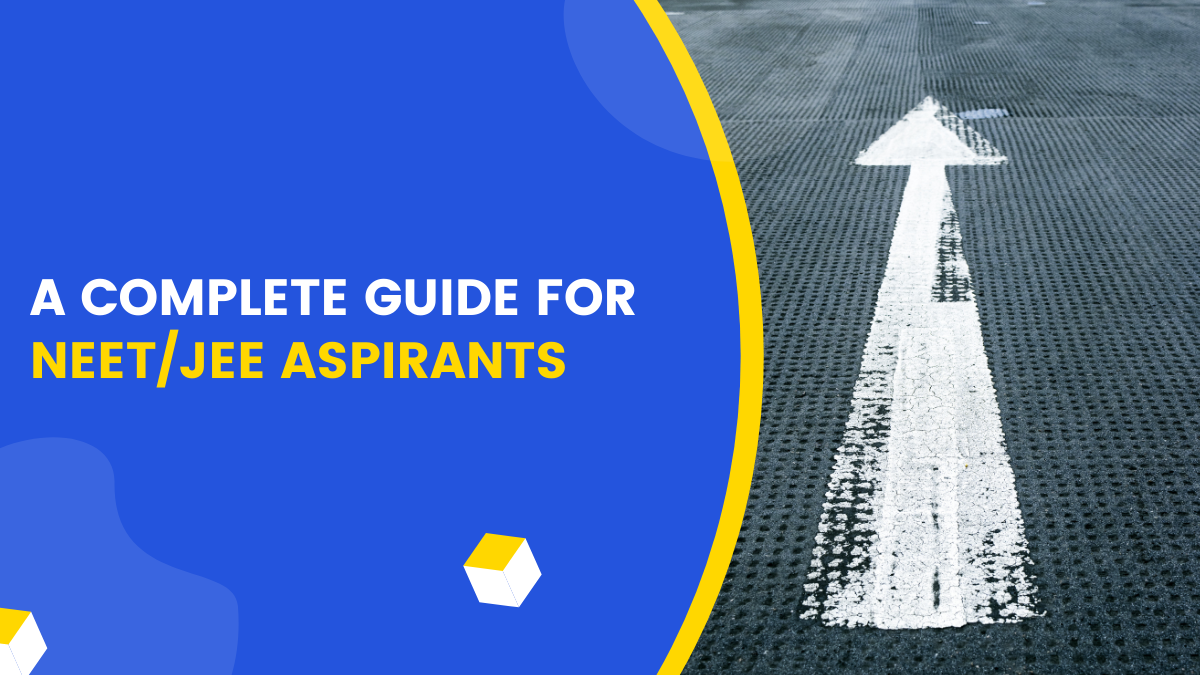JEE is going to be held in four different attempts from Feb to May (23 Feb, 15 March, 27 April, and 24 May with 3 to 4 days for competing phases). Among which 2 of the attempts has been postponed for Covid-19, while NEET is going to be held by Aug 1. Well, DOUBTBUDDY has come up with a full-fledged master guide prepared by experts to help you give your best in both examinations.
Here are the tips, tricks and strategies that will help you to plan your studies and prepare for the JEE/NEET exams.
Know Your Syllabus & Exam Pattern
“Strategize first to save your time & Energy”
Knowing the syllabus before sitting for studies is the most common practice that a student should always pursue. It is because board exams cover only 12th Class syllabus, whereas JEE/NEET requires the full preparation of both 11th & 12th class syllabi. Also, the sad part is “You can’t even leave a single topic while preparing for JEE / NEET.”
Therefore, if you think you can just sit randomly and revise the syllabus twice or thrice and crack both boards and competitive exams then you’re wrong! You should research well about the topics which are most likely to come in both exams. It will save your time and energy that you can always put later on in your preparation.
MASTER THE COMMON PAPER FROM JEE/NEET–
As we’ve discussed above, the syllabi of both board and competitive exams is similar, which eventually can act as an advantage for your preparation. Hence, you need to go through the subjects and make a list of topics that are common to both. Your priority should be to finish these common topics first.
This way you can complete the 30% preparation of both exams at the same time. Also, for competitive exams (JEE/NEET), you can link the topics of Chemistry, Maths, and Biology from 11th and 12th Classes. In this way you can create a flow, better understanding, and stronghold on the relatable concepts.
Tip: In both discussed ways, you can prepare the topics in detail and practice MCQs and all possible kinds of questions to cover a big chunk of your syllabus for both exams at a time.
Prioritize Instead of Balancing
“Because you can’t travel in two boats at the same time”
As you know that both exams are important for you, so don’t assume that you need to balance both all the time. You need to learn prioritizing things one over the other so that you can prepare an effective time-table allotting time to both accordingly.
Also, if you know that your target college’s admission is through merit-based scholarships, then board exams should be your priority and meanwhile, competitive exams should be considered as a back-up or vice-versa. However, always remember you have to pass your boards to take admission in the colleges.
Never go out to perform without a plan that’s what intelligent people say. So always know first what you want more and what is the best way to achieve it. This thought-process will keep your mind well-organized and motivated towards your goal.
Mock-Tests & Previous Year Questions
“Practice! Practice! Practice!”
Along with your revision and regular studies try to solve question banks, sample-papers, mock-tests which will help you to know about the exam pattern, syllabus, and division of marks. It makes you know their problem areas, rectify their mistakes, learn time management and increase their confidence so that it would not get repeated in their final examination.
Forget About Rote Learning
“You can crack boards with this but not the JEE/NEET”
You know that competitive exams like JEE/NEET tests the candidates on their analytical, logical, and problem-solving skills. The chance of the theoretical questions being asked in the examination is very low. It clearly states that you have to stop rote learning right now, and start practising an application-based approach.
If you’re not able to understand the concepts, you can go online and search for relevant videos describing the concepts and clearing all doubts. Also, you can go for subscribing e-learning platforms that are known to solve your doubts instantly through live chats with academic experts.
All the Best for your exam!
For more information do check https://blog.doubtbuddy.com/



